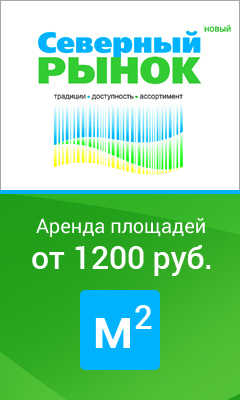Вы здесь
Wiki: Pedia
О компании
A wiki is a web platform that enables multiple users to collaboratively create, edit, and arrange content through a browser.
They emphasize simplicity and openness — pages can be created or modified without special technical skills, and most maintain an edit history so revisions can be reviewed or reverted.
Main features
- **Collaborative editing:** Several contributors can edit pages, sometimes at the same time.
- **Edit history:** Each change is logged with a time and the editor’s name or IP.
- **Interlinking:** Creating links among pages is straightforward, which helps interconnect content.
- **Lightweight markup:** Pages are typically formatted with lightweight markup like WikiText or Markdown.
- **Permission settings:** Wikis may allow public editing or restrict changes to registered or authorized users.
- **Discussion pages:** Separate talk pages allow contributors to discuss edits and structure.
Typical uses
- Community-driven knowledge bases (for example, Wikipedia)
- Project documentation and internal company knowledge repositories
- Cooperative writing and shared notes
- School and instructional projects
Benefits
- **Fast collaboration:** Multiple people can add and refine content quickly.
- **Openness:** Transparency through revision histories and discussions.
- **Expandable:** They scale organically as users add more pages and topics.
Drawbacks
- **Vandalism and false information:** Open editing may allow intentional or accidental inaccuracies.
- **Inconsistent quality:** Content quality may vary widely between pages.
- **Organizational issues:** Lack of structure or rules can lead to disorganization and conflicts.
Illustration
- **Wikipedia** — the largest example, maintained by the Wikimedia Foundation and contributed to by volunteers worldwide.
Условия финансирования:
Объем инвестиций:
Срок инвестирования, лет:
Обеспечение инвестиций:
Желаемая доходность:
Предпочтительные отрасли
Формы инвестиций
A wiki is a web platform that enables multiple users to collaboratively create, edit, and arrange content through a browser.
They emphasize simplicity and openness — pages can be created or modified without special technical skills, and most maintain an edit history so revisions can be reviewed or reverted.
Main features
- **Collaborative editing:** Several contributors can edit pages, sometimes at the same time.
- **Edit history:** Each change is logged with a time and the editor’s name or IP.
- **Interlinking:** Creating links among pages is straightforward, which helps interconnect content.
- **Lightweight markup:** Pages are typically formatted with lightweight markup like WikiText or Markdown.
- **Permission settings:** Wikis may allow public editing or restrict changes to registered or authorized users.
- **Discussion pages:** Separate talk pages allow contributors to discuss edits and structure.
Typical uses
- Community-driven knowledge bases (for example, Wikipedia)
- Project documentation and internal company knowledge repositories
- Cooperative writing and shared notes
- School and instructional projects
Benefits
- **Fast collaboration:** Multiple people can add and refine content quickly.
- **Openness:** Transparency through revision histories and discussions.
- **Expandable:** They scale organically as users add more pages and topics.
Drawbacks
- **Vandalism and false information:** Open editing may allow intentional or accidental inaccuracies.
- **Inconsistent quality:** Content quality may vary widely between pages.
- **Organizational issues:** Lack of structure or rules can lead to disorganization and conflicts.
Illustration
- **Wikipedia** — the largest example, maintained by the Wikimedia Foundation and contributed to by volunteers worldwide.
Стадии инвестирования
A wiki is a web platform that enables multiple users to collaboratively create, edit, and arrange content through a browser.
They emphasize simplicity and openness — pages can be created or modified without special technical skills, and most maintain an edit history so revisions can be reviewed or reverted.
Main features
- **Collaborative editing:** Several contributors can edit pages, sometimes at the same time.
- **Edit history:** Each change is logged with a time and the editor’s name or IP.
- **Interlinking:** Creating links among pages is straightforward, which helps interconnect content.
- **Lightweight markup:** Pages are typically formatted with lightweight markup like WikiText or Markdown.
- **Permission settings:** Wikis may allow public editing or restrict changes to registered or authorized users.
- **Discussion pages:** Separate talk pages allow contributors to discuss edits and structure.
Typical uses
- Community-driven knowledge bases (for example, Wikipedia)
- Project documentation and internal company knowledge repositories
- Cooperative writing and shared notes
- School and instructional projects
Benefits
- **Fast collaboration:** Multiple people can add and refine content quickly.
- **Openness:** Transparency through revision histories and discussions.
- **Expandable:** They scale organically as users add more pages and topics.
Drawbacks
- **Vandalism and false information:** Open editing may allow intentional or accidental inaccuracies.
- **Inconsistent quality:** Content quality may vary widely between pages.
- **Organizational issues:** Lack of structure or rules can lead to disorganization and conflicts.
Illustration
- **Wikipedia** — the largest example, maintained by the Wikimedia Foundation and contributed to by volunteers worldwide.


